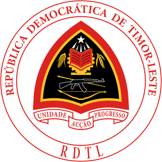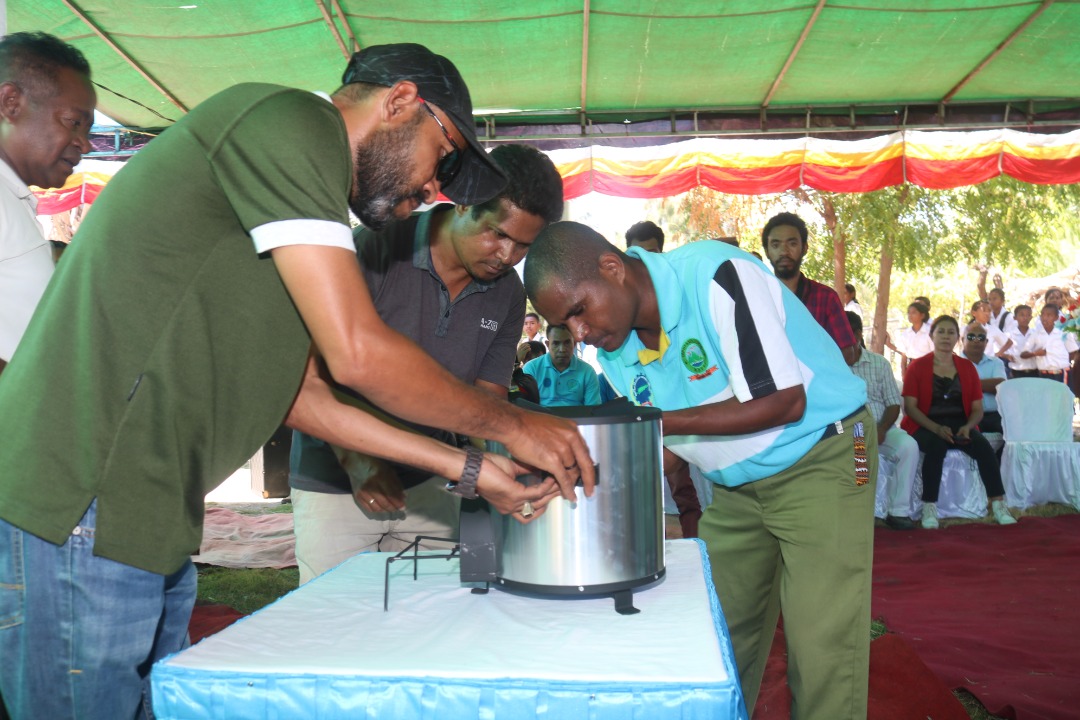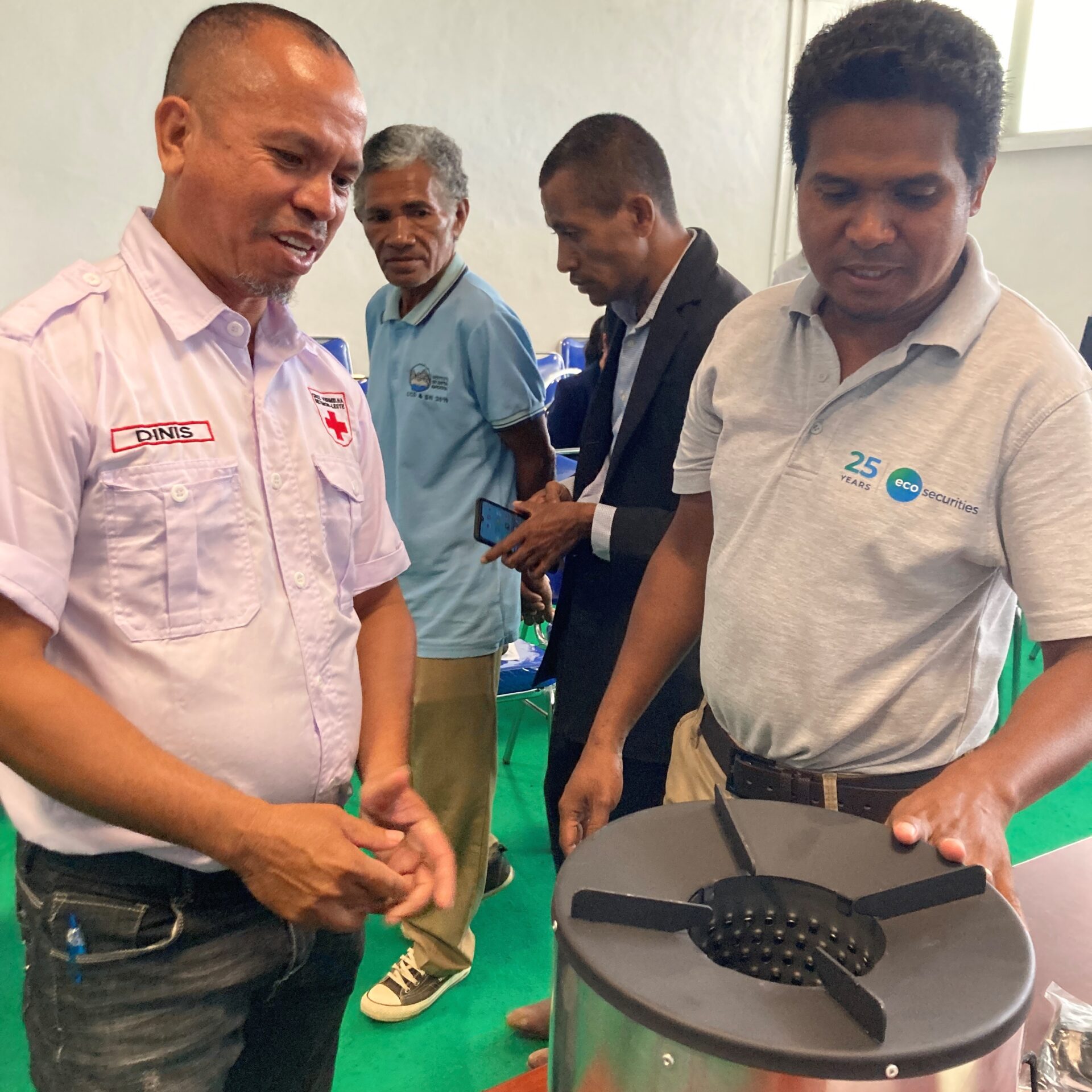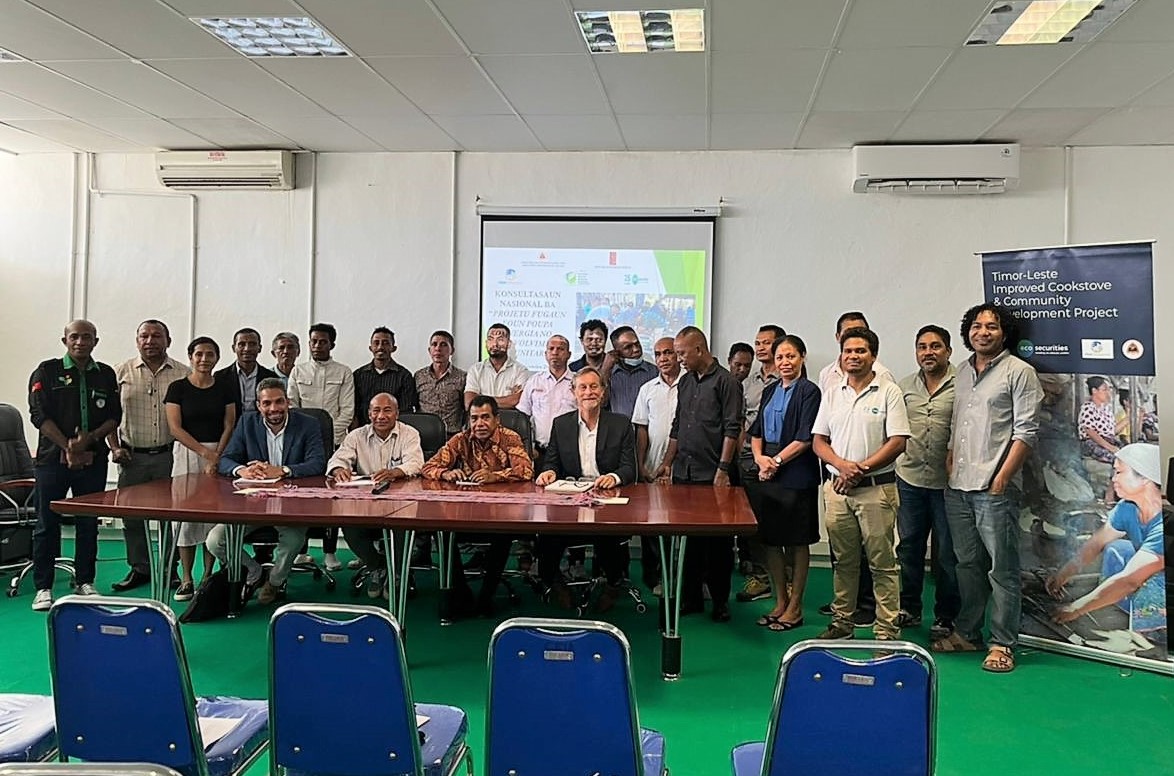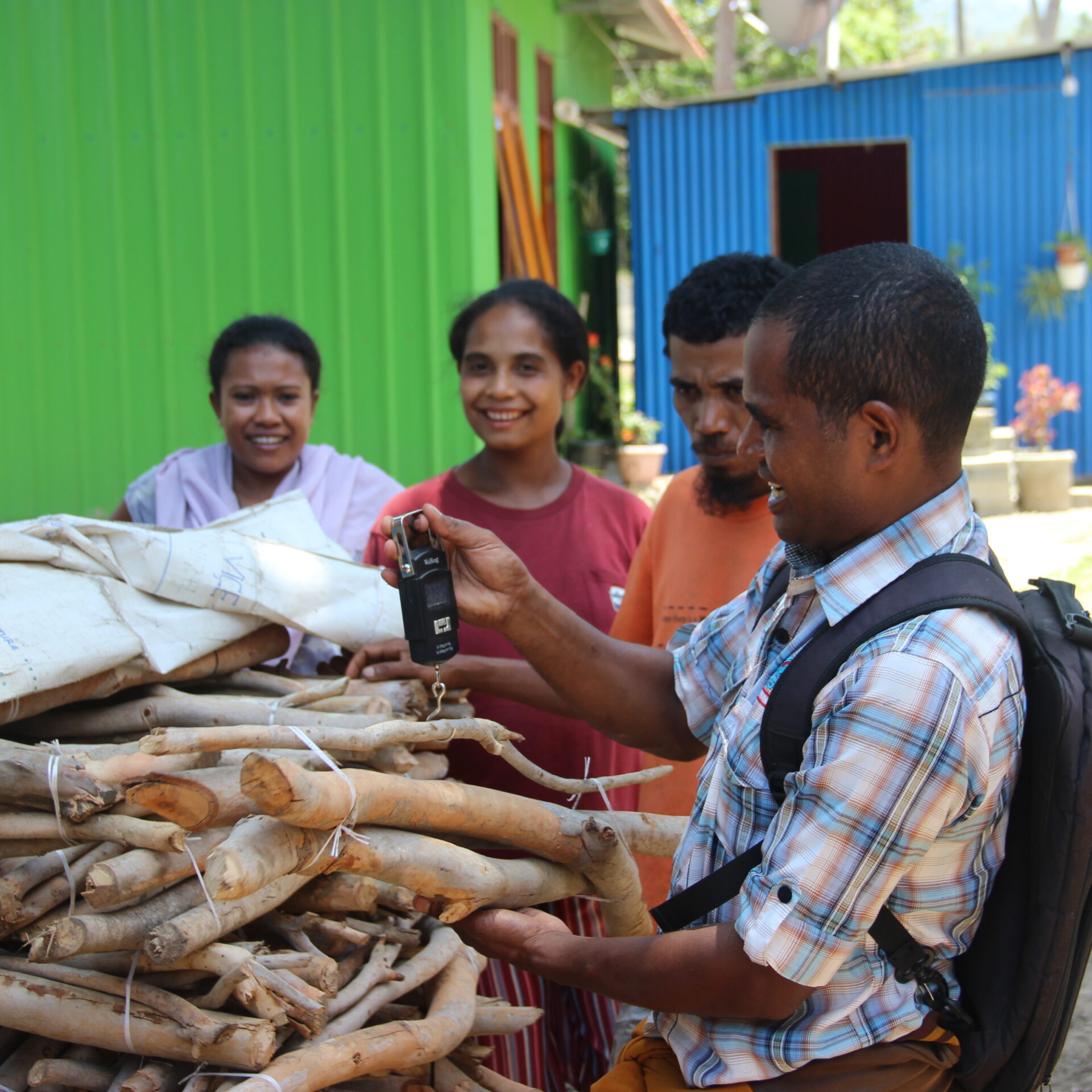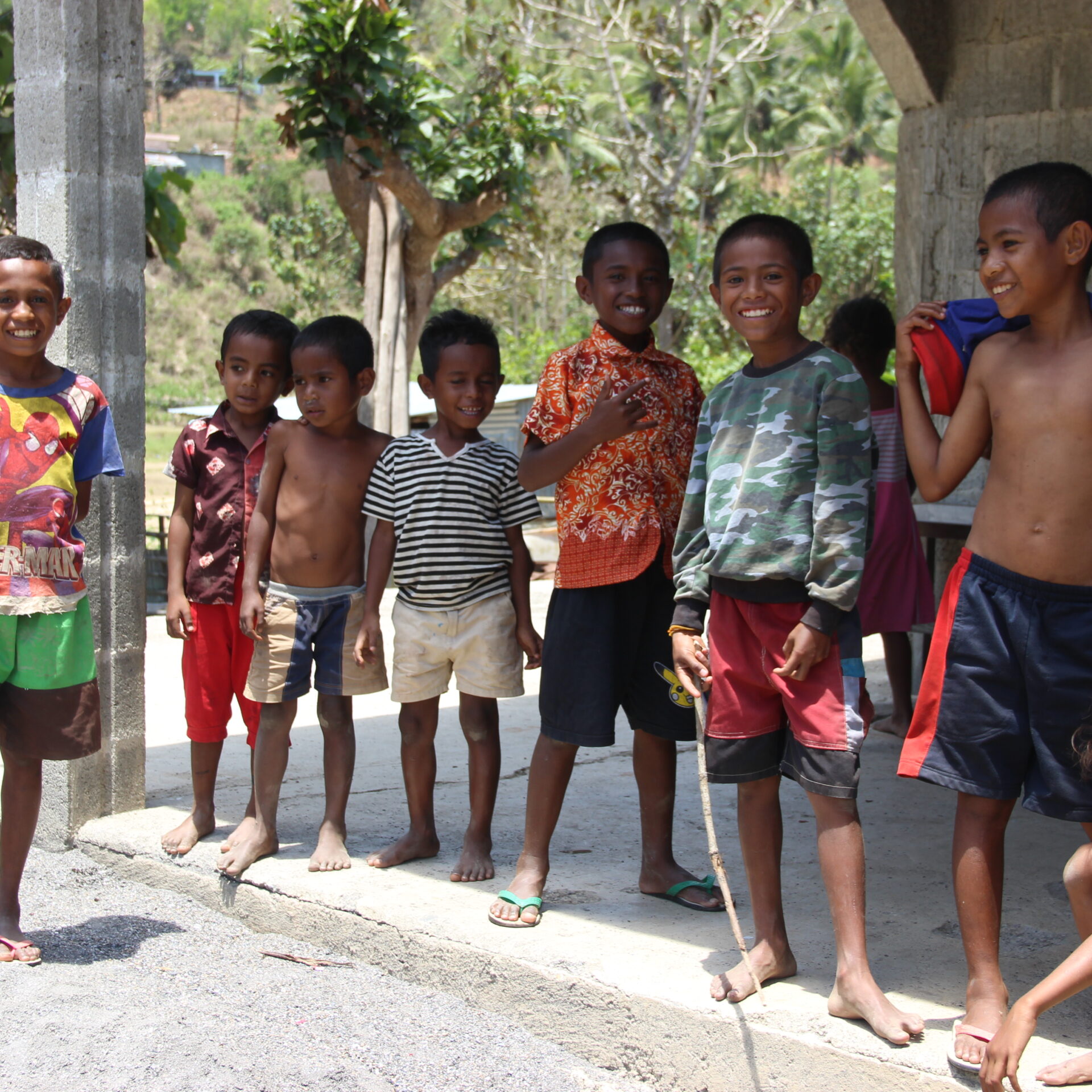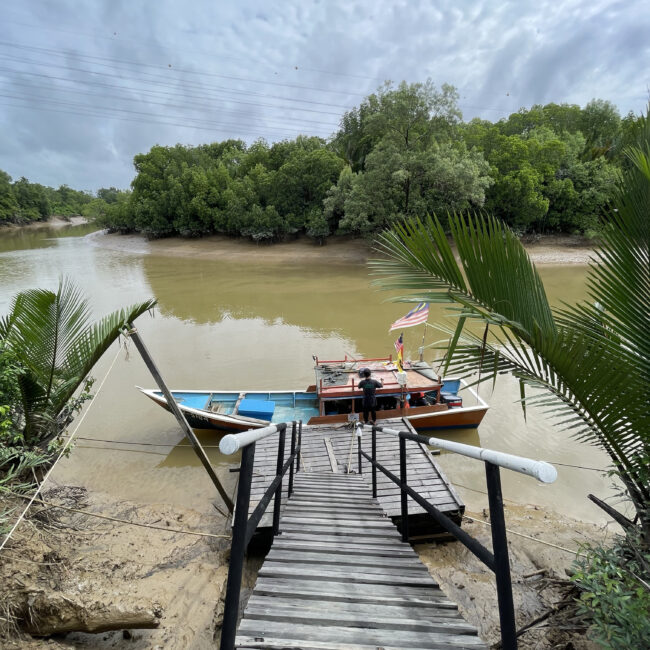Investment-ready
Timor-Leste Improved Cookstoves Project
Distribution of improved, energy-efficient cookstoves
-
Timor-Leste
-
Cookstove & energy efficiency
-
200,000 cookstoves
-
340,000 tCO2e removed/ annum
-
10 years
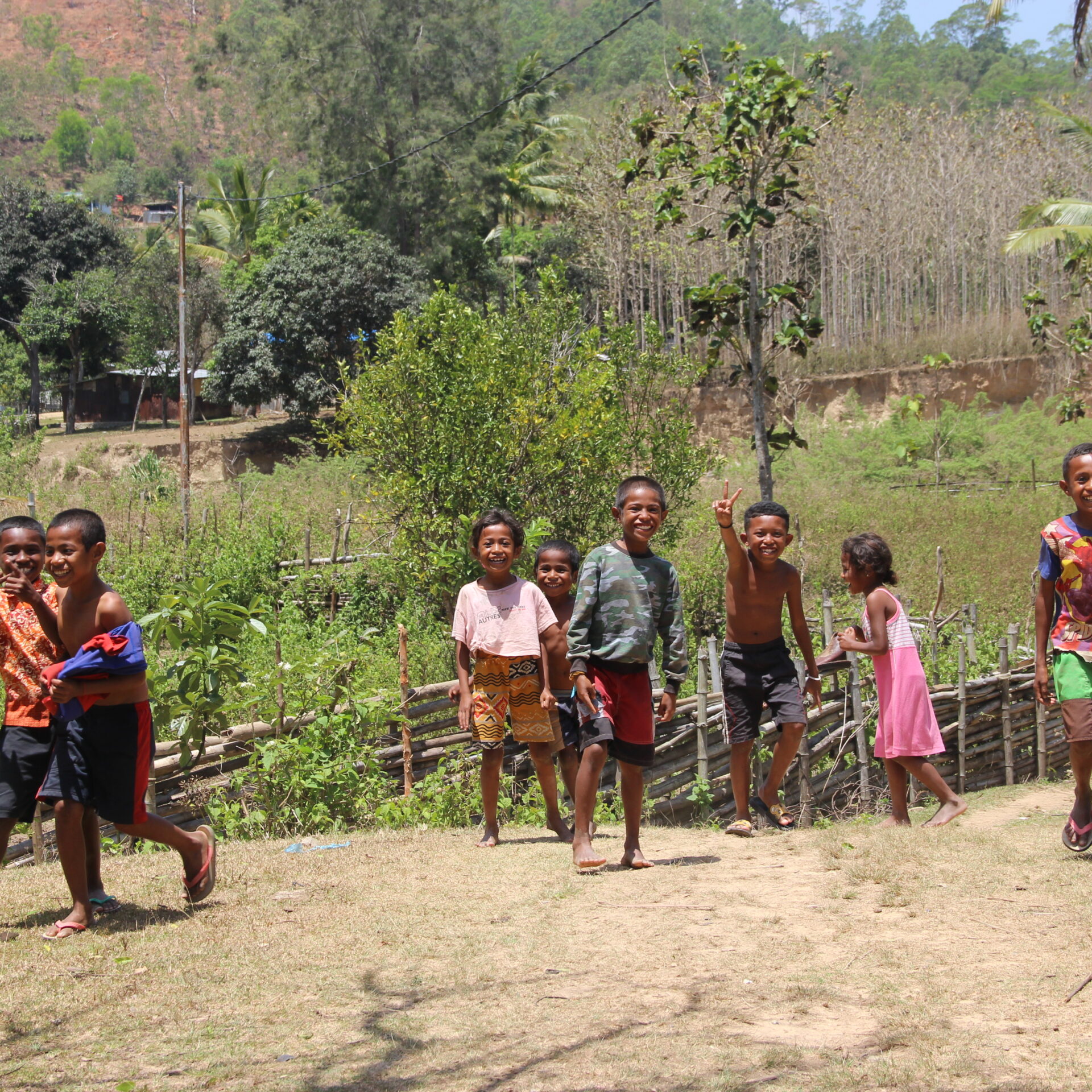
Partners
Standards
Location
Dili, Timor-Leste
Timor-Leste Improved Cookstoves and Community Development Project

The Timor-Leste Improved Cookstove project will improve the environmental, health, economic and gender outcomes of around 1 million people.
Typically rural families in Timor-Leste cook with firewood using open flames in cooking pits. This way of cooking is incredibly inefficient and has a huge impact on the environment (both in terms of carbon emissions and deforestation), people’s health and well-being and the time needed to collect firewood from nearby forests and habitats which typically falls to the women of the household.
Switching to energy efficient cookstoves through this program will help 200,000 households over the next 3 to 4 years to reduce their carbon emissions, significantly reduce indoor air pollution and particulate emissions, as well as free up time for women and girls in the family to work or attend school as they don’t need to spend hours searching for fuel – thereby improving incomes and gender outcomes. In addition, the use of these cookstoves will also indirectly conserve the forest environment as the cooking practice will require less wood consumption.
This transformational project to improve rural cooking practices is supported the government of Timor-Leste and will leverage carbon finance generated through the sale of over 2 million carbon credits over the next 10 years to fund the distribution and use of these cookstoves as well as a the implementation of programs to help improve the livelihoods of the local communities.
Cookstove projects deliver maximum impact for communities as they are extremely cross cutting when it comes to delivering for people and planet, contributing to at least 8 of the UNSDGs (3, 4, 5, 8, 12, 13, 15 and 17).

Interested in investing in this project?
The involvement of an investor will be pivotal in this project, providing the financial resources to scale the project over the long- term and secure high-quality, high-integrity carbon credits. This project represents a unique opportunity to help rural communities across Timor-Leste benefit from cleaner, healthier and more efficient cookstoves, reducing levels of deforestation in the region, improving livelihoods and improving gender outcomes for women and girls in the local community.

Image gallery
Image gallery
On the ground impact
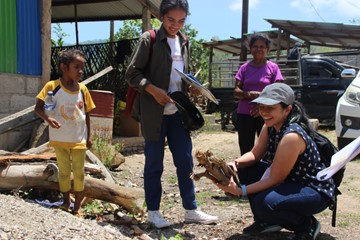
This transformational project to improve rural cooking practices over the next 4 years will:
- Increase the practice of energy-efficient cooking in 200,000 homes, benefitting approximately 1 million people
- Reduce carbon emissions by 880,000 tonnes over the 4 year period (2.2 million tonnes over 10 years)
- Significantly reduce firewood consumption, allowing families more time to engage in other productive activities
- Save families money as they will need to purchase much less firewood
- Enable women and girls to go to school or secure jobs – improving gender, education and financial outcomes
- Indirectly conserve forests within the region
Supporting the SDGs
-
3 – Good health & wellbeing
Reducing indoor air pollutants and particulate emissions
-
5 – Gender equality
Freeing up time to enable women and girls to engage in education and paid work
-
7 – Affordable & Clean Energy
Supporting the switch to much cleaner more efficient cooking practices

-
8 – Decent work & economic growth
Freeing up time for women in particular to secure paid jobs
-
12 – Responsible consumption & production
Reducing the pressure on forests for firewood
-
13 – Climate action
Reducing carbon emissions by over 2 million tonnes over 10 years
-
15 – Life on land
Promoting forest conservation and reducing demand for firewood
-
17 – Partnerships for the goals
Multi-stakeholder partnerships between the Timor-Leste government, indigenous communities across the 14 municipalities, NGOs, & private sector
Featured
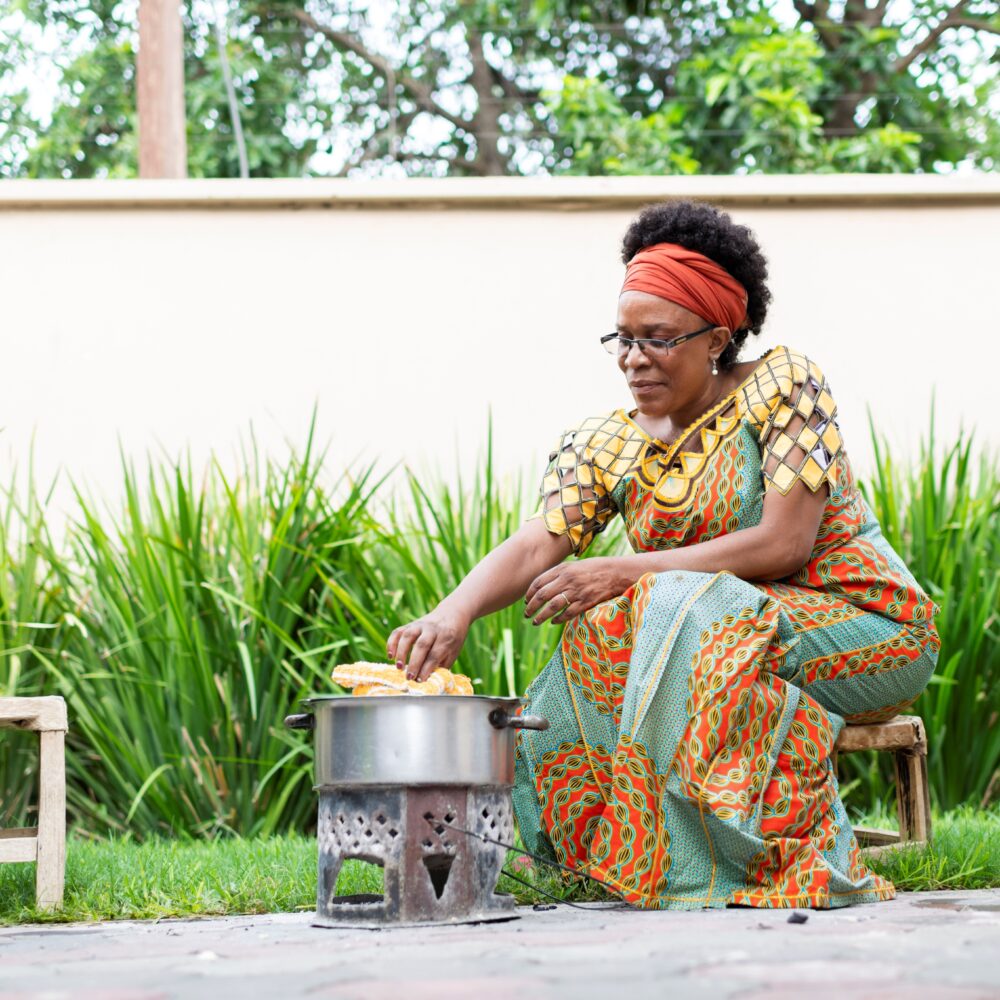
2024 Summit on Clean Cooking in Africa: Challenges and Opportunities
This blog on clean cooking outlines the challenges and opportunities that exist for dealing with this global issue that affects up to 1.2 billion people around the world who are still cooking using inefficient, hazardous cooking methods that have significant environmental, health, education and livelihood impacts.
